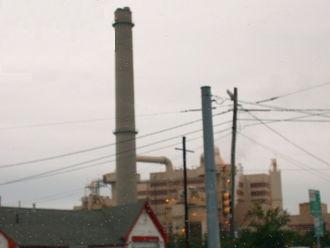| You are at Toxics Alert > Feature > Waste-to-energy is no quick fix for Municipal Solid Waste Management | |||
 |
 |
||
|
Subscribe || Tell a Friend || Print View | ||
| Home | Editorial | Feature | Interview | News | Policy | Updates | Reports / International News | Partner | |||
|
|||||||||||||||||||||||||||||||||||||||||||||||||||||||||||||||||||||||||
Waste-to-energy is no quick fix for Municipal Solid Waste ManagementPrashant Pastore
|
|
Households |
WetWaste/HH/day (g) |
Wet waste in Kg/day |
Wet waste tonne/day |
Wet waste in tonne/annum |
Waste diverted from landfill/day |
|
500 |
600-700 |
300-350 |
0.3-0.35 |
109.50-127.75 |
300-350 Kg |
|
1000 |
-Do- |
600-700 |
0.6-0.7 |
219.00-255.50 |
600-700 Kg |
|
4000 |
-Do- |
2400-2800 |
2.4 – 2.8 |
876.00-1022.00 |
2400-2800 Kg |
Recyclables:
Each household produced an average of 250-350g of recyclable waste per day.
The total amount of recyclables collected from the block of 1,000 houses each day was 250-350kg.
Table 2 – Amount of Recyclables Generated:
|
Households |
Recyclables/HH/day(g) |
Recyclables (Kg)/day |
Recyclable (tonne)/day |
Recyclable (tonne)/annum |
|
500 |
250 –350 |
125-175 |
0.125-0.175 |
45.625-63.875 |
|
1000 |
-Do- |
250-350 |
0.25-0.35 |
91.25-127.75 |
|
4000 |
-Do- |
1000 - 1400 |
1.0 – 1.4 |
365.0-511.0 |
Total amount of waste diverted from landfill sites:
As a result of the scheme around 600-700 kg of waste that would have been sent to landfill sites each day was either composted or recycled. This amounts to a saving of 200 tonnes per year.
Table 3 – Details of Manageable Waste:
|
Households |
Wet waste/day (Kg) |
Recyclable/day (Kg) |
Waste/day (Kg) |
Diverted from landfill/day |
Approx. Waste/annum |
Approx. waste diverted from landfill/annum |
|
1000 |
600 -700 |
250 – 350 |
850 - 1050 |
850 – 1050 Kg |
346.75 tonnes |
346.75 tonnes |
|
4000 |
2400 – 2800 |
1000-1400 |
3400 - 4200 |
3400 – 4200 Kg |
1387.0 tonnes |
1387.0 tonnes |
If the waste management model was rolled out for all 4,000 houses in Defence Colony a total of 2,400- 2,800 kg or 2.4-2.8 tonnes of wet waste per day could be prevented from going to landfill sites. This, together with the recovery of recyclables, means a potential 2,650 – 3,150 kg or 2.6 – 3.0 tonnes of municipal solid waste could be saved from landfills on a daily basis.
Cost of recovery from recyclable waste:
Each waste collector can make around Rs 50-75 a day from the sale of recyclables. This is a potential income of Rs 400-600 per day from the sale of recyclables from 1,000 households involved in the study.
Table 4 – Revenue Generation from Sale of Recyclables:
|
Households |
No. of waste collectors (WC) |
Revenue/WC/day |
Total revenue/day |
|
1000 |
8 |
Rs.50 - 75 |
Rs. 400 – 600 for eight waste collectors |
Long Term Impact of the Scheme:
Increased earning potential for waste collectors
Recognition of the important work done by waste collectors
Rolling out of the solid waste management model to other communities
Considerable reduction in amount of waste being sent to landfill through recycling and composting
Recovery of natural resources
Strategies:
Secure the active participation of Residents’ Welfare Associations
Introduce occupational safety measures for waste collectors and facilitate hygienic waste collection.
Use the skills and experience of A-block to roll out the programme to the rest of Defence Colony
Place the system of waste management in the hands of waste collectors
Launch an awareness campaign in schools and educate children in the best practices of solid waste management
Constraints:
RWA is active but very few residents take part in its activities
Lack of segregation of household waste
Poor relations between RWA and waste collectors
High turn-over of RWA members
Limited availability of land for segregation of waste and composting
Monitoring and supervision of the programme
Marketing of compost
Lack of RWA funding for solid waste management schemes
Recommendations:
Encourage community participation in solid waste management to create a sense of ownership and sustainability
Involve local schools as pupils can have an important role to play in passing information on to parents
Formalise the links between the local authority and communities which is a necessary step for sustainability
Provide incentives for communities to sign up to the scheme
Encourage a sense of ownership among communities and waste collectors
Make waste management a health and hygiene issue
•
Home •
FEATURE •
INTERVIEW •
NEWS •
POLICY •
UPDATES •
REPORTS / INTERNATIONAL NEWS •
 It
is almost seven years since rules on the management of household
waste were first introduced in India. Those rules outlined steps to
be taken for the management of household waste. They clearly defined
the roles and responsibilities of those involved in dealing with the
country’s waste disposal.
It
is almost seven years since rules on the management of household
waste were first introduced in India. Those rules outlined steps to
be taken for the management of household waste. They clearly defined
the roles and responsibilities of those involved in dealing with the
country’s waste disposal.